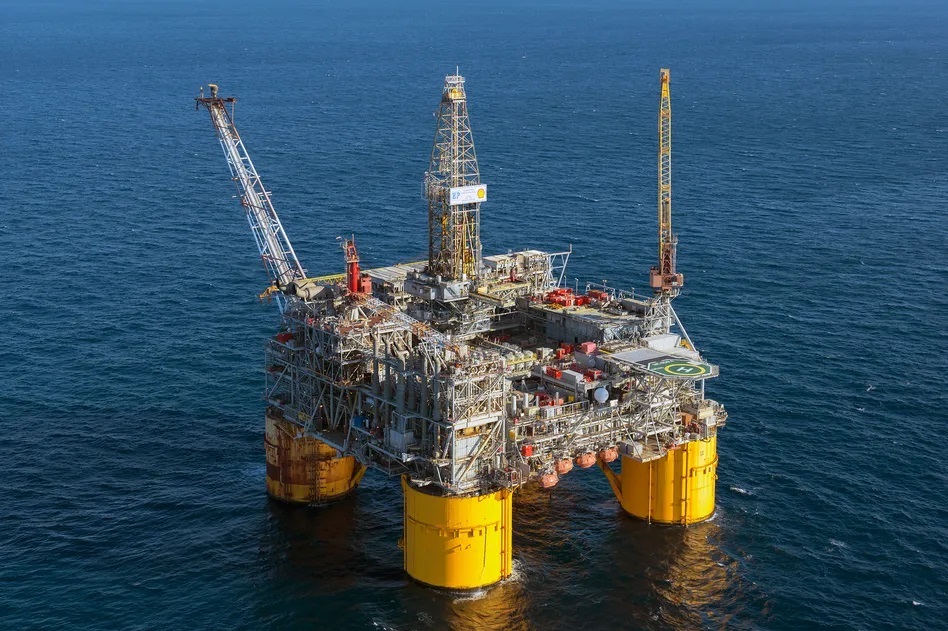Economy
M&A Value in Africa’s Energy Sector to Hit $4.5b in 2018—Report

**Drops to $3.3b in 2020
By Dipo Olowookere
A new report by Baker McKenzie in Johannesburg, South Africa, has revealed that the value of Mergers and Acquisitions (M&A) in the energy sector in Africa and the Middle East will rise to $4.5 billion in 2018.
According to the Baker McKenzie’s Global Transaction Forecast for the Energy Sector, M&A transactions in 2017 was $4.4 billion.
In 2019, the value will increase again $5.2 billion before dropping to $3.3 billion in 2020.
Head of the Energy, Mining and Infrastructure Sector Group at Baker McKenzie, Mr Kieran Whyte, disclosed that in Africa, greenfield investment continued in the energy sector, particularly in renewables, which was forecast to grow in coming years.
“The extent of the power deficit across Africa is well known and increasing electricity generation, whether on-grid or off-grid, across the continent is the focus of a number of initiatives.
“The African Development Bank’s New Deal on Energy for Africa has set as its target universal access to electricity across Africa by 2025,” Mr Whyte said.
According to AfDB, to achieve this, 160GW of new on-grid generation and some 75 million new off-grid connections will be needed, through a mix of conventional and renewable energy sources. Complementary initiatives by Power Africa, the EU and other multilateral and development finance institutions will also play a greater role.
“There is clearly a lot of opportunity for the energy sector in Africa, which is reflected in forecast increases in M&A activity in the next two years,” he said.
However, Mr Whyte noted that investment in the energy sector had in some instances stalled due to regulatory and political uncertainty, as well as economic conditions in particular countries in Africa.
“In South Africa, uncertainty surrounding the country’s future energy policy, the delay in the publication of the Integrated Resource Plan, anticipated additional political changes, as well as financial and governance concerns at the State-owned electricity supply company, Eskom, have all resulted in an uncertain energy landscape and a loss of potential direct foreign investment in the electricity sector,” he noted.
Mr Whyte said that it was hoped that under the leadership of new South African President, Mr Cyril Ramaphosa, investors in the sector would receive the clarity they were looking for, which would act as a catalyst for renewed investor confidence.
“The recent appointment of a new Energy Minister, Jeff Radebe is considered to be a positive move in that he is the country’s longest serving continuous cabinet minister, with experience across numerous portfolios. In addition, changes in leadership at Eskom, and President Ramaphosa’s commitment to finalising mining regulation, closing the fiscal gap, stabilising debt, addressing unemployment and restoring state-owned enterprises to health are all moves that will encourage investment in the sector,” he noted.
“What the South African energy sector now needs is more certainty and consistent implementation of energy legislation and policies. Certainty is also needed across other sectors that rely on the energy sector including the mining, industrial and commercial sectors.
“This will restore confidence in South Africa as an investment destination and facilitate direct foreign investment, which will in turn assist in much needed job creation and skills development.
“It will also be necessary to ensure transparency and integrity in the procurement of all goods and services as well as robust and independent energy regulation,” he opined.
“In addition, the government must support and breathe new life into the stalled renewable energy programme, which will be the catalyst for the implementation of other energy programmes. This will ensure South Africa an energy mix that is progressive, capable of meeting customer demands, and that will assist in South Africa discharging its sustainability obligations,” noted Mr Whyte.
Mr Whyte said clarity was also needed on whether, how and when the South African nuclear programme would go ahead.
President Ramaphosa said at the World Economic Forum in early 2018 that the country’s economic situation meant that South Africa could not afford to build a major nuclear plant and this sentiment has been echoed in recent announcements by the Minister of Finance.
“Going forward, bearing in mind the World Economic Forum’s theme of Creating a Shared Future in a Fractured World, and the evolution of the Fourth Industrial Revolution, we need to ensure that energy sector infrastructure investment in Africa is fit for purpose, and based on sustainable development principles,” Mr Whyte noted.
“This means taking cognisance of technological innovation, decarbonisation and climate change, connectivity and digitization, regionalisation and integration, urbanisation and industrialisation and inclusive economic growth models. We also must ensure that we adhere to the UN Sustainability Development Goals and principles for responsible investment,” he explained.
“Further, civic participation in the entire process is essential to ensure that there are no trust deficits across all the supply chains. This will help to ensure procurement integrity and further bolster South African energy sector investment,” Mr noted Whyte.
Baker McKenzie’s Global Transaction Forecast noted that the global energy sector was expected to undergo greater diversification in years to come as companies prepared for advances in technology and renewables.
Economy
Nigeria to Export New Crude Grade Cawthorne in March

By Adedapo Adesanya
The Nigerian National Petroleum Company (NNPC) Limited is set to commence export of a new light, sweet crude grade known as Cawthorne from March 2026.
According to a report by Reuters, an NNPC spokesperson confirmed the development, describing it as part of efforts to increase output and consolidate Nigeria’s recent recovery in crude oil production.
The move aligns with Nigeria’s broader strategy to boost production after years of constraints caused by pipeline vandalism, crude theft, and unrest in oil-producing regions.
This follows the launch of two other new grades, Obodo in 2025 and Utapate in 2024, Nigeria, whic,h as Africa’s top oil exporter, seeks to strengthen its standing within the Organisation of the Petroleum Exporting Countries and its allies (OPEC+)
Cawthorne crude is scheduled for export in the third week of March and has an API gravity of 36.4, making it similar in quality to Nigeria’s Bonny Light, which is prized for high petrol and diesel yields.
According to Reuters, citing a trading source, the state oil national company issued a tender last week for cargo loading between March 24 and 25.
Analysts at Kpler noted that the new grade is expected to be exported via the Floating Storage and Offloading (FSO) vessel Cawthorne, which has a storage capacity of about 2.2 million barrels. The vessel is designed to enhance transportation and production from Oil Mining Lease (OML) 18 and nearby assets in the Eastern Niger Delta.
Kpler estimates that, based on storage capacity, Cawthorne could increase Nigeria’s crude and condensate output from roughly 1.65 million barrels per day to around 1.7 million barrels per day for the remainder of the year.
Nigeria’s crude oil production recently dropped from the OPEC+ quota of 1.5 million barrels per day, with output at 1.48 million barrels per day recorded in January, according to OPEC data.
Beyond increasing Nigeria’s crude offerings to the international market, the introduction of Cawthorne could also attract buyers seeking specific light, sweet crude qualities, buoy foreign exchange earnings, which would help strengthen government revenue and ease borrowing needs.
New crude grades are typically differentiated by sulfur content, API gravity, and production source, enabling producers to target specific refinery configurations and market segments.
In November 2024, NNPC officially launched the Utapate crude oil blend in the international market, describing it as a milestone for Nigeria’s export profile.
Earlier in July 2024, NNPC and its partner, Sterling Oil Exploration & Energy Production Company (SEEPCO), lifted the first 950,000-barrel cargo of Utapate crude, which was shipped to Spain.
Economy
Moniepoint Research Shows Diminishing Role of Cash in Nightlife Payments

By Modupe Gbadeyanka
A new report released by Africa’s leading all-in-one financial ecosystem, Moniepoint Incorporated, has revealed that the use of cash for financial transactions is gradually dying due to security concerns.
The study, which looked into transaction data of over 27,000 clubs, bars, and lounges, showed that bank transfers dominated, followed closely by card payments, with cash actively discouraged. It was observed that transfers outpace card payments by nearly 2 million transactions during peak nighttime hours across its network.
In the research titled The Business of Community Nightlife in Nigeria, findings provided a rare, data-driven look into the country’s informal night economy.
While high-end Detty December venues grabbed headlines with daily revenues of N360 million and table prices reaching N1.2 million, Moniepoint’s study shifted the spotlight to the “community nightlife” where roadside bars, suya spots, and neighbourhood joints form the bedrock of social life for millions of Nigerians.
One of the study’s most operationally significant findings concerns the timing of spending. Nightlife in Nigeria runs late, but economically, the night is decided early.
Transaction volumes begin climbing sharply from 8 pm, peak before midnight, and then decline steadily even as venues remain full. By the time the night is at its longest, purchasing activity has already wound down.
However, for bar operators, this has clear practical implications – the most critical hours for staffing, stocking, vendor payment and cash flow management are the earliest hours of the day between midnight and 6 am.
The report further underscores the sector’s role in employment, noting that local bars typically expand their workforce by 30-50 per cent on peak nights. Conservative estimates suggest that at least 54,000 people are engaged in nightlife labour every night across Nigeria.
It was also observed that the most common transaction narrations from the data sourced – “food”, “pay”, “sent”, “pos”, “cash” – reflect the full breadth of nightlife spending: street food, club entry, lounge tabs, transport, and afterparties. Digital payments have gained huge traction in Nigeria’s social space.
While alcohol remains a key revenue driver, the data shows that food is the quiet stabiliser of Nigeria’s night economy, particularly in local and informal settings. In several neighbourhood venues, bottled water and meals outsell beer and spirits, especially early in the evening.
Lagos leads in sheer concentration of nightlife establishments, with 4,856 bars, clubs, and lounges on the Moniepoint network. FCT follows with 2,515, then Rivers (2,362), Delta (1,930), and Edo (1,574).
Katsina leads the country in nighttime food truck payment value, with vendors pulling in over N130 million in the last 12 months. Kwara State leads in transaction count. Nigeria’s nightlife economy is distributed, not overly elitist.
On the lending side, the report noted that a significant share of loan requests from bar and lounge operators is directed toward renovations, furniture, lighting, and sound systems, showing that investments are intended to attract and retain customers in a competitive sector where ambience plays a decisive role.
Commenting on the report, the chief executive of Moniepoint, Mr Tosin Eniolorunda, said, “Nigeria’s local bars and night-time operators are not peripheral to the economy; they are a critical part of its architecture. We see a substantial and sustained economic sector that employs hundreds of thousands of Nigerians every night and deserves the same attention we give to agriculture, healthcare, and retail.
“Our goal is to make sure every one of those businesses has the tools to grow. From giving credit to finance renovations and sound systems to providing same-day settlement that allows vendors to restock and with tools like Moniebook that power inventory management and reconciliation, Moniepoint is ensuring that this vital artery of the nation’s economy remains viable and empowering.”
Economy
CBN Reduces Interest Rate by 50 Basis Points to 26.50%

By Adedapo Adesanya
The Central Bank of Nigeria (CBN) has cut the interest rate by 50 basis points to 26.50 per cent from 27 per cent.
Nigeria’s apex bank announced this during its two-day 304th Monetary Policy Committee (MPC) meeting, which concluded on Tuesday in Abuja.
This comes after the country’s interest rate cooled in January to 15.10 per cent from 15.15 per cent, according to the National Bureau of Statistics (NBS), strengthening the case for a reduction.
The CBN Governor, Mr Yemi Cardoso, said all members of the MPC unanimously agreed upon the decision.
“The committee decided to reduce the monetary policy rate by 50 basis points to 26.50 per cent,” he said.
Mr Cardoso stated that the liquidity ratio was maintained at 30 per cent, and the standing facilities corridor was adjusted to +50 to -450 basis points around the monetary policy rate.
He said the committee retained the Cash Reserve Ratio (CRR) at 45 per cent for commercial banks and 16 per cent for merchant banks, while the 75 per cent CRR on non-TSA public sector deposits was equally maintained.
The CBN uses the MPR, which works as the benchmark interest rate, to manage inflation, macroeconomic stability, and liquidity.
Last November, the MPC retained the Monetary Policy Rate (MPR) at 27.00 per cent. The last time the apex bank cut interest rates was in September last year, to 27 per cent from 27.50 per cent after a series of easing in inflation.
Market analysts had argued for higher interest cuts due to results seen in the CBN’s inflation targeting framework. Meanwhile, some say the 50 basis points reduction will offer a temporary reprieve as inflation heads for a single-digit target in the coming months.
-

 Feature/OPED6 years ago
Feature/OPED6 years agoDavos was Different this year
-
Travel/Tourism10 years ago
Lagos Seals Western Lodge Hotel In Ikorodu
-

 Showbiz3 years ago
Showbiz3 years agoEstranged Lover Releases Videos of Empress Njamah Bathing
-

 Banking8 years ago
Banking8 years agoSort Codes of GTBank Branches in Nigeria
-

 Economy3 years ago
Economy3 years agoSubsidy Removal: CNG at N130 Per Litre Cheaper Than Petrol—IPMAN
-

 Banking3 years ago
Banking3 years agoSort Codes of UBA Branches in Nigeria
-

 Banking3 years ago
Banking3 years agoFirst Bank Announces Planned Downtime
-

 Sports3 years ago
Sports3 years agoHighest Paid Nigerian Footballer – How Much Do Nigerian Footballers Earn


















